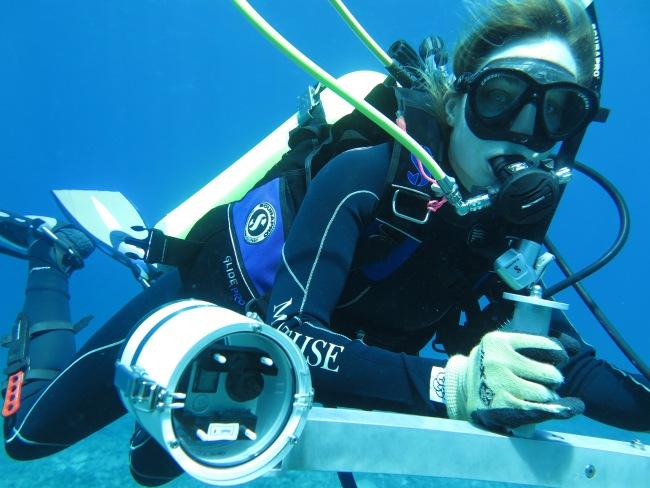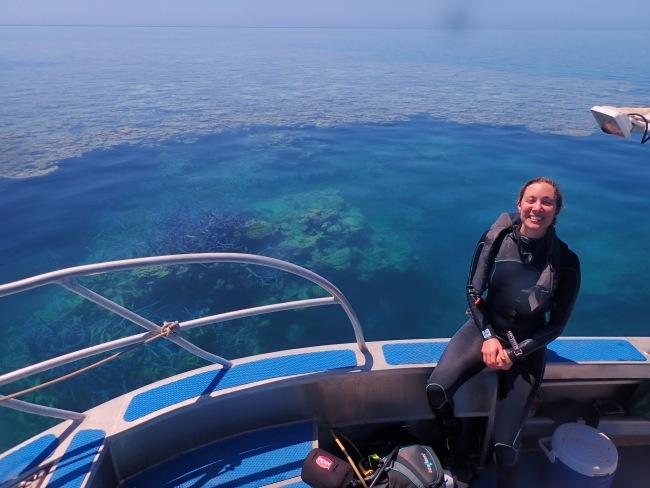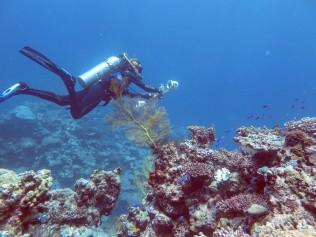Why so many of us wanted to be marine biologists
Marine biologists were the original #girlboss, what happened?

H20, Free Willy and how TV launched 1000 dreams.
For early 2000s kids, Sea World was the happiest place on earth, Free Willy secured our belief in human-whale friendships, and H20: Just Add Water made us long for two half-human-half-fish besties.
Our childhoods were narrated by David Attenborough's effortless voice, not to mention the family event that was The Blue Planet on free-to-air TV.
So perhaps it's no wonder we all wanted to become marine biologists when we grew up.
"From the research we know kids aged about 5-7 years-old focus on occupations they see on a regular basis ... In the 90s and early 2000s, there was a focus on nature, animals and water-type movies, big blockbuster movies like Free Willy, lots of emphasis on Sea World, lots of Australian TV shows around water, mermaids, and scientists on ships," Sydney-based child psychologist Jaimie Bloch said.
"No kid aged 5-8 says they want to be a banker [when they grow up], it's things that look fun, adventurous and exciting - the fantasy kind-of jobs."
Now, she said, kids talked about being social media stars, gamers or 'un-boxers'. And so the cycle continues.
But not many of us did become marine biologists in the end, perhaps due to a lack of understanding around what working in marine sciences actually involves.
Marine biologist Dr Emma Camp has always loved the ocean.
“For as long as I can remember, even as a young child, I would draw pictures of me swimming with dolphins,” the University of Technology researcher said.
“I wanted to be a marine scientist. I thought it seemed like a cool job, but I didn’t have any concept of what it involved.”
Only when Camp did an internship at a marine research station as part of her university degree could she imagine working in that field.
She ain't alone.
Since landing her first job in marine science, the internationally renowned coral expert has become acutely aware of the issues that keep young people – and young women especially – from pursuing a career in her industry.
“I’m confident we’re heading in the right direction. But the fact we’re still having this conversation that people were having a decade ago shows that it’s not happening at the rate we need.”
Marine ecologist Dr Emily Lester grew up in London, far from the ocean, but was obsessed with Attenborough, particularly The Blue Planet series about sea creatures.
It all clicked for her after high school when she visited the Ningaloo Reef in WA - which she calls her favourite place on earth - and saw a whale shark for the first time.

"The size of the shark kind of blew my mind. Being in the water with the shark was even better than watching them in an Attenborough documentary," Lester, who is now a postdoctoral research fellow at the Australian Institute of Marine Science, said.
When she discovered that day the world's biggest fish was threatened, she decided she would become a marine scientist.
What do marine biologists actually do?
One of the biggest barriers to pursuing a career in marine sciences is the one Camp herself came up against – not knowing what the day-to-day of a marine biologist actually looks like.
“If you can’t see it, you can’t be it,” Camp said.
Lester added that marine scientist's probably spend a lot less time in the water than people imagine.
"I think everyone imagines that marine scientists spend every day in the water swimming with amazing animals. They think it's a lot of fun. And even though I don't spend as much time in the water as I imagined, the job is still a lot of fun."
While currently working on a project that doesn't require her to be "in the field", her day-to-day workload involves running experiments, writing papers, analysing data, talking to other scientists, policymakers and the general public.

But some of her most fulfilling work has been researching the threats whale sharks face and documenting their behaviours in Ningaloo Reef.
Lester also travelled a lot for work pre-pandemic, which she says is one of the best parts of the job. Later this year she is heading to Hawaii to explore their coral reefs.
What degree do I need to be a marine biologist?
Lester studied biology in her undergraduate degree, before undergoing a Masters of Marine Sciences at the University of Western Australia. She then did a PhD on the role of reef sharks in coral reefs.
She said if you want to be a researcher, like her, you likely need a PhD. She added those with a bachelors or masters degree could work in other aspects of marine science, like consulting or in technician roles, which are almost entirely in the field.
But Camp said hopeful marine scientists should first ask "'What am I good at?' Then, "'How can I tailor that to address the challenges that we're facing now in the ocean?'"
“Whether it’s in government or the media or academics… there’s all these different areas where an interest in marine science can be applied. I don’t think that’s something a lot of people know. At least not at the age where they’re being asked to make decisions about what they want to study moving forward," Camp said.
How much does a marine biologist make in Australia?
This is all very inspiring. But the question of can I be a marine biologist and get a mortgage lingers?
As it turns out, many of us land based mammals are sometimes discouraged from pursuing a certain career path, like marine science, because there is a lot of competition and not much cash.
Marine biology certainly falls into that category.
“Because it’s seen as an exciting job, and it attracts passionate and enthusiastic people who are willing to volunteer their time, there’s definitely a culture whereby working for free is normalised,” Camp said. “I definitely did a lot of unpaid work.”
“But I don’t think it has to be that way. Again, we’re realising that there is a lot of ocean-related jobs that require other skill sets, many of which are highly paid."

According to SEEK, Sr Marine Scientist, or those with titles Marine Cell Biologist or Principal Ecologist, make within $80,000-$100,000.
For research fellow roles, which require a PhD, pay goes up to between $103,841 - $138,583.
A PhD stipend is about $30k per year, tax free, so you might have live frugally before it pays off.
What are the barriers to becoming a marine biologist?
Camp said kids still see scientists as "old, white men with glasses and curly hair". She knows this, because she asks children to draw what they think a scientist looks like.
“I think those of us that are in industry need to work harder to change that narrative," Camp said.
And largely it's true. According to the Department of Industry, Science and Energy Resources, the proportion of women working across all STEM-qualified industries has increased from 24% in 2016 to 28% in 2020.
Lester said there were also financial barriers to becoming a marine scientist, beyond the $30k salary as a PhD student.
"A lot of the experiences that employers are looking for, can really only be obtained from unpaid or expensive internships that really aren't feasible for everyone. It's only people from quite privileged backgrounds that can afford to take on months of unpaid work just to get a job in the future, maybe. And it's a problem because if we want to face some of the really big threats in our oceans, we're going to need to hear from a variety of thoughts and perspectives."
She said it's likely due to marine sciences being a very competitive field.
Time to revisit that childhood dream?


